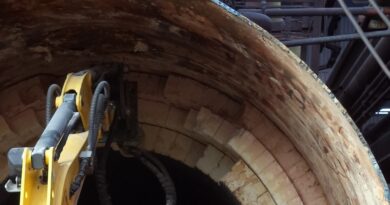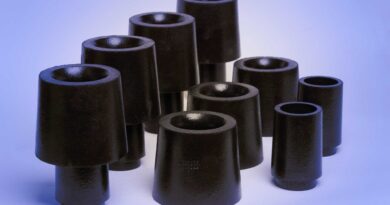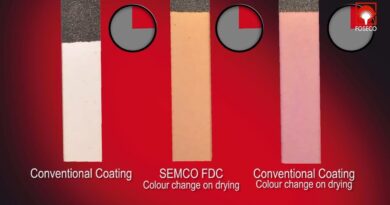Almatis opened integrated tabular alumina facility in Falta, India
Almatis,the market leader in speciality alumina products and solutions for the high performance refractory, ceramic, polishing and speciality markets,celebrated the official opening of its fully integrated tabular alumina facility in Falta, India, in November 2022.
Anıl Sönmez, CEO, Almatis said: “We have seen that India is taking a big leap forward, which will result in a larger market growth, and increase refractory material demand. Much of the growth in the region must have certificates to the ‘Make in India’ initiative, thus encouraging full domestic production.
“Our mission is to be the partner of choice in high performance alumina-based products. Therefore we focus strongly on strategic values such as customer-centricity, innovative and sustainable products, operational and quality excellence, and employee health and safety. Proudly, in 2022 Almatis achieved record employee health and safety statistics.” said Sönmez.
“We expect the next five years to be slightly less eventful than the last five years. We do not expect supply chain conditions to be anywhere near as drastic (and expensive) as they were.”
With over 1,000 employees worldwide, Almatis operates nine industrial sites and six application and development centres. Dedicated manufacturing facilities are located in each major market region to meet market demand (see panel below).
Specific global products are produced in every region to secure quality and ensure supply to global customers. Almatis’ unique global operational network allows its customers to source the same product and product quality in each region of the world.
Sönmez commented: “It is our mission to maintain reliable supplies to customers in all major regions. In November 2021, we inaugurated our tabular alumina plant in India in line with our corporate philosophy of being close to our customers.
This was a significant milestone showing Almatis’ commitment to being a reliable supplier and partner to the success of our customers in the region. In order to ensure the region’s continued growth, we aim to provide extensive services to the Indian refractory and steel industry.
The last five years have been truly incredible, 2017 and 2018 were years of strong demand and most all raw material suppliers could not keep up with demand. This was followed in 2019 by a slowdown in demand and some regions hinted at recessionary conditions.
2021 and 2022 had a recovery unlike anything we’ve witnessed and highlighted what happens to global supply chains when the economies all expand simultaneously and most companies have supply dependencies within China.
Altogether, at least 3.5 of the last five years have been under conditions where demand far exceeds supply and the other 1.5 years were the exact opposite. Logistics rates drive much of global competitive and B2B behaviours, and to that end rates between North American and Europe need to be lower or else the “old ways” will be even more dominant than before.
Markets change over time, and Almatis expects the steel and refractory markets in India and South East Asia to continue to grow, while the market in China remains stagnant. That will continue until construction and housing come into balance.
The European market is unfortunately shrinking for steel and refractories, but the ceramics market remains stable. North America and South America benefit slightly in steel and refractories, and further are benefitting in the ceramics market as manufacturing and subsidised “green” investments increase.




